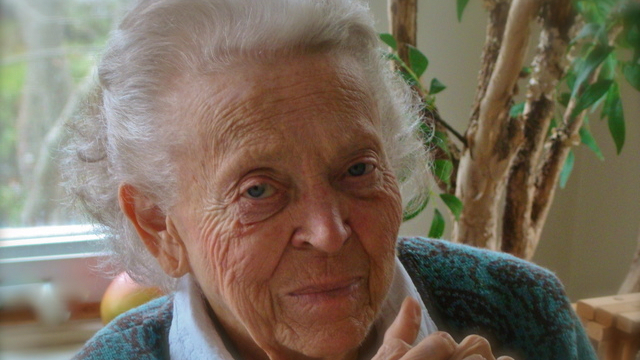Update (June 22): Elisabeth Elliot's memorial service will be held Tuesday at Gordon College in Wenham, Massachusetts.
———
One of the most influential Christian women of the 20th century, Elisabeth Elliot, has died.
Elliot, the Christian author and speaker whose husband, Jim, was killed during their short-lived but legendary missionary work among unreached tribes in eastern Ecuador in the 1950s, passed away Monday at 88, according to reports. She had been suffering from dementia.
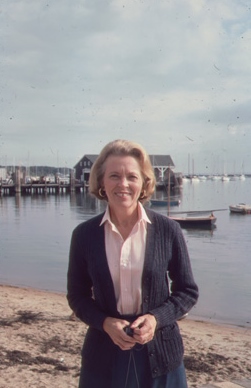
She wrote two books about her husband’s martyrdom and the years she and her newborn daughter spent living among the Aucas, the tribe that killed him. Her Through Gates of Splendor ranked No. 9 on CT's list of the Top 50 books that have shaped evangelicals. The book became a bestseller, as did Shadow of the Almighty: The Life and Testimony of Jim Elliot.
“Those became the definitive inspirational mission stories for the second half of the 20th century,” said Kathryn Long, professor of history at Wheaton College. “She really had a sense of her audience as evangelicals, and she could tell this story in a way that keyed into [their] values.”
Long said that Elliot’s later books on missions, No Graven Image and The Savage My Kingsman, raised important questions about mission work. Her legacy, Long said, reflects her complexity as both “a gifted, inspiring writer, and one who’s extraordinarily perceptive.”
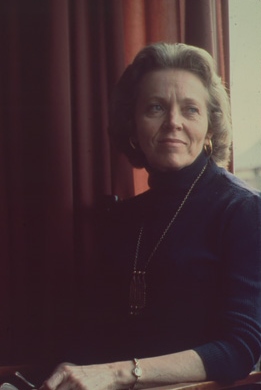
The daughter of missionaries to Belgium and a graduate of Wheaton (which offers a full biography), Elliot went on to write more than a dozen additional books and launched a radio show, Gateway to Joy, which ran through 2001. She wrote for CT on the prayer of the five widows, disappointment in Jesus, a lesson from the Resurrection, and what happens when death takes away a loved one.
Nancy Leigh DeMoss, whose program Revive Our Hearts succeeded Elliot's, was among the first to announce her death on social media. DeMoss wrote that Elliot “steadfastly demonstrated what it meant to simply 'trust and obey.'” She also recalled Elliot's signature opening line on-air: You are loved with an everlasting love. That’s what the Bible says. And underneath are the everlasting arms. This is your friend, Elisabeth Elliot.
Elliot's former radio producer, Jan Wismer, described the missionary as a “pioneer and prayer warrior” in a 2013 tribute by Today's Christian Woman (a CT sister publication). Wismer wrote:
Elisabeth believed in asking this foundational question: Is this God's will for me, right now, in this place? … Unapologetically, Elisabeth espoused such truths as: give to get, lose to find, and die to live. Setting her sights “on things above” (Colossians 3:1), Elisabeth ministered among three indigenous groups in Ecuador before helping listeners and readers find joy in the ordinary affairs of life—like cooking meals and cleaning toilets—on her globally syndicated radio program. She called it living sacramentally, and her rock-solid principles shaped my life.
Last year, as Elliot's health declined, WORLD interviewed her third husband, Lars Gren. Elliot met him while he was a student at Gordon-Conwell Theological Seminary, and they were married for 36 years, until her death. The magazine reported:
Gren says Elliot has handled dementia just as she did the deaths of her husbands. “She accepted those things, [knowing] they were no surprise to God,” Gren said. “It was something she would rather not have experienced, but she received it.”
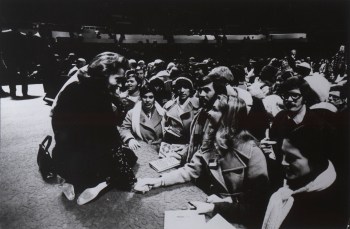
Steve Saint—son of Nate Saint, one of the other missionaries killed alongside Elliot's first husband—posted about “Aunt Betty's” death on Facebook, saying:
I think Elizabeth would be happy just being remembered as not much of a woman that God used greatly. To the rest of us mortals she was an incredibly talented and gifted woman who trusted God in life's greatest calamities, even the loss of her mind to dementia, and who allowed God to use her. He did use her.
Tens of thousands of people will mourn her loss. I will certainly be one of them. But isn't it incredibly wonderful that our loss is certainly her gain. She can think and talk once again! Let's remember her daughter Val and son-in-law Walt and her eight grandchildren. Let's also remember and pray for her husband Lars who cared for her and saw that she was cared for during her ten year battle with the disease which robbed her of her greatest gift.
Elliot was listed among CT’s 50 Women You Should Know, which mentioned how many of her 20 books became staples in many evangelical homes. With titles like Let Me Be a Woman and Passion and Purity (one of CT's Top 5 books on singleness), Elliot built a particular following among Christian women.
Christine Caine called her “a mighty woman of God" and “a true warrior” whose legacy continues among today's women of faith, including Caine's own daughters.
“When I was in Bible college I wanted to be a courageous missionary like her,” Caine, Bible teacher and leader of the women's ministry Propel, told CT. “Her faith, tenacity, commitment to the call of God, and relentless faith during dark times and seasons of great loss and heartache have helped me to navigate challenging seasons in my own life and ministry.”
Kay Warren, wife of Saddleback Church pastor Rick Warren, considered Elliot “one of her most sacred companions" and honored her with a reflection that concluded:
Elisabeth, thank you for shaping me into the woman I am, for modeling for me what it looks like to follow hard after Jesus, for never walking away from God in your darkest days and for holding true to your faith to the end. Thank you on behalf of millions of other women – young and old – who found in you a woman worthy to emulate.
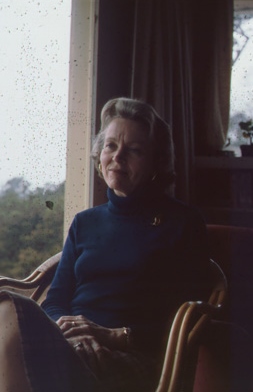
“Her legacy is in hundreds of thousands of women like me… She called us all to see the empty promises of the world's definition of womanhood and to accept the contentment of womanhood as God designed it to be experienced,” said women's ministry leader and author Dannah Gresh, who began reading Passion and Purity as a single college student. “As I look over her life today, I realize that God called her to a special appointment…one that few of us could have endured.”
Christian fans and leaders, including Baptist preacher Tony Evans, sent tweets on Monday morning recalling some of her most quotable lines:
- “Leave it all in the hands that were wounded for you.” (Through the Gates of Splendor)
- “This gift for this day; God still owns tomorrow.” (Let Me Be a Woman)
- “If you believe in a God who controls the big things, you have to believe in a God who controls the little things.” (Let Me Be a Woman)
In one of the first issues of CT, Elliot wrote:
We have proved beyond any doubt that He means what He says—His grace is sufficient, nothing can separate us from the love of Christ. We pray that if any, anywhere, are fearing that the cost of discipleship is too great, that they may be given to glimpse that treasure in heaven promised to all who forsake.
Four years after the martyrdoms, she gave CT an exclusive update on her plans in Ecuador. A later lengthy interview with CT explored how her "strong views were not about women only."
CT blogger Ed Stetzer highlighted Elliot's comments on the place of women in missions, which a CT cover story called the "key to the future of missions."
The story of Jim Elliot, Nate Saint, and companions Peter Fleming, Roger Youderian, and Ed McCully—most famously narrated in Elisabeth Elliot's Through Gates of Splendor—is perhaps the most chronicled missionary account of the past 100 years, and remains an inspiration for many. (Wheaton College offers video tributes to the martyrs, as well as a special collection of Elisabeth Elliot's papers.)
CT often remembers the five missionaries, noting their place in the spread of evangelicalism. Steve Saint, son of Nate Saint, wrote a cover story examining the reason they were killed. The Aucas went on to join the "cutting edge of modern missions." Dayuma, the first Auca convert, died last year. Rachel Saint, who served alongside Elliot, died in 1994.
[Photo courtesy of elisabethelliot.org]

